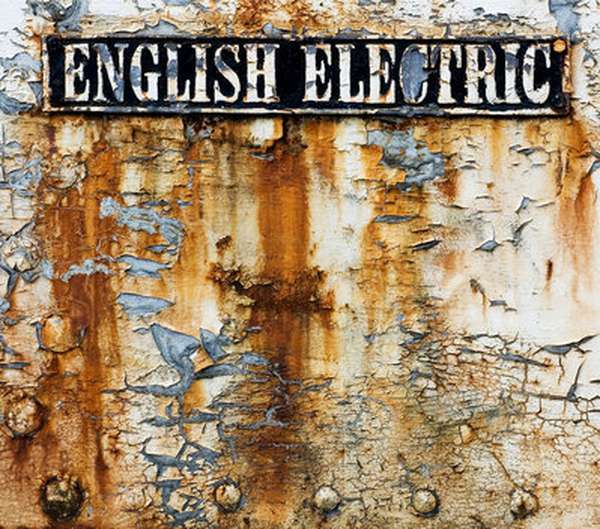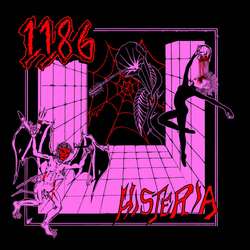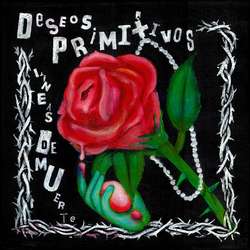It is a truth universally acknowledged, that a progressive rock band in possession of a good reputation must be in want of a double album. They're something of the gold standard of progressive music--proving that you have the chops to write over eighty minutes of music without it beginning to suck is such a truly monumental and respectable feat that many bands can pull it off only once. (Unless, of course, your name is Arjen Lucassen and you make a career out of doing just that.) But despite the heavy expectation on their shoulders, Big Big Train's stupefying release English Electric is one of the finest albums ever released in the form.
If you had given me Part One (released in late 2012) without any other identification, I probably would've dated it to the 1970s. Standing in stark contrast to the finely polished broderline-metal that's the standard for modern prog rock, Big Big Train maintain a level of understated subtlety that is truly admirable. Though the sound is polished, they don't feel the need to artificially jack their volume to compete with the unrestrained loudness of their peers. This gives their music a nigh-unparalleled degree of dynamic range.
This works incredibly effectively alongside the pastoral backdrop that frames the entire work. It's not just apparent in the obviously lighter pieces like "Upton Heath" and "Uncle Jack"; the lyrics everywhere exude this feeling of folksy innocence that's so delicate to capture. But it also works in the other direction: the sparingly-used louder dynamics also serve to emphasize the sublime developments in "A Boy in Darkness" or "Judas Unrepentant", more in line with the traditional progressive sound.
But what makes this album truly fantastic is the way that Big Big Train blend post-prog with a true to form classic rock sound. The whole thing just sounds seventies; it's impossible to listen to this album and not hear aural citations to Trespass, Animals, and Fragile (and it doesn't help that David Longdon sounds exactly like Peter Gabriel). Though it sounds new, it still remains a level of soft understatedness that stands in stark contrast to the loud blaring of their contemporaries, utilizing the modern standard of improved sound while still having a level of musical subtlety we haven't been able to hear since Selling England by the Pound. And somehow, amongst it all, the writing never feels weak. Despite the fact that the album goes on nearly an hour, the band literally never lets up, somehow extending a euphoric musical high way past the time it should've expired.
Having to follow up a release like that is no easy task, but Big Big Train proved they were up to the task with the release of Part Two in early 2013. Whereas the first half was firmly rooted in nostalgia, the second seems more than happy to embrace the changing progressive zeitgeist, building and expanding upon the changes in 00's prog rock to add to the foundations laid in Part One.
Foremost, the album is noticeably brighter, louder, and clearer. Without losing any of their compositional delicacy, the band augment the dynamics just enough to give the music a much grander pronouncement, more in line with the modern standards for sound. The album accordingly feels much more lively and active, with the softer folk leanings growing from soft curiosities into full-blown, orchestrated declarations.
In addition, the band plays up the post-progressive aspect of their sound much more, focusing on extended tracks, repetitious composition, and vast dynamic movement. One merely needs to listen to the opening epic “East Coast Racer” before the parallels to Anathema become clear; the song runs the gamut from sensitive and moving to aggressive and challenging, crescendo and climax intertwining and playing counterpart to the pensive and bittersweet denouement.
The songwriting is generally somewhat weaker than on Part One. However, that's a bit of a misleading comparison; even if they couldn't quite keep pace with themselves, Big Big Train still far outpace the majority of their contemporaries in terms of quality. This album is still better than anything you'll hear from Transatlantic or Coheed and Cambria, and seen on its own, Part Two is still a phenomenal accomplishment.
In tandem, the albums paint a beautiful picture whose creation was only made possible by Big Big Train's absolute dedication to their art. The band displays such a deep, intimate knowledge of both past and future progressive movements that it's hard to find any faults at all in their work. You must hear these albums—they are undoubtedly the highlights of an already impressive career for one of the most criminally underrated progressive acts this decade. English Electric is a godsend, without hyperbole a once in a lifetime achievement.
Recommended if you enjoy: early Genesis, modern Anathema, A Silver Mt. Zion




